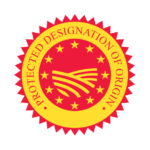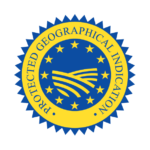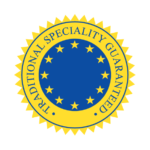German hops bear the quality labels of the European Union to signify purity and authenticity as a high-quality product from Europe. These labels protect consumers and beer producers alike.
Every country in the world has special food products that have become part of the fabric of their culture. In Europe for example, some skilled artisans worked for centuries to make the perfect cheese, wine and olive oil.
To protect its agricultural and gastronomic heritage, the EU created quality labels for agricultural and food products. These quality labels are intended to encourage diverse agricultural production and protect product names from imitation. Thus, consumers receive the reassurance that food bearing the EU quality labels is giving them an authentic and genuine product. In other words, you really get what you paid for.
That is true for German hops, too. Certified by the European Union, German hops can be traced back to individual farms and their owners. They guaranty with their name that every lot of hops is a premium quality beer ingredient.
In the EU, three labels exist:

1. Protected Designation of Origin (PDO) covers agricultural products and food, which are produced, processed and prepared in a given geographical area using recognized know-how. Examples of PDO are: Gorgonzola cheese (Italy), Feta cheese (Greece), Hops (Germany).

2. Protected Geographical Indication (PGI) is for agricultural products and foodstuffs closely linked to the geographical area. At least one of the stages of production, processing or preparation takes place in the area. Examples of PGI are: Tiroler Speck – bacon (Austria), Wild Scottish Salmon (UK), Hops (Germany).

3. Traditional Specialty Guaranteed (TSG) is focused on traditional character, either in the composition or means of production. Examples of TSG are: Mozzarella cheese (Italy), Kriek beer (Belgium), Serrano Ham (Spain).
Together, these three labels assist consumers and producers alike to make the right choices for the quality they want.
